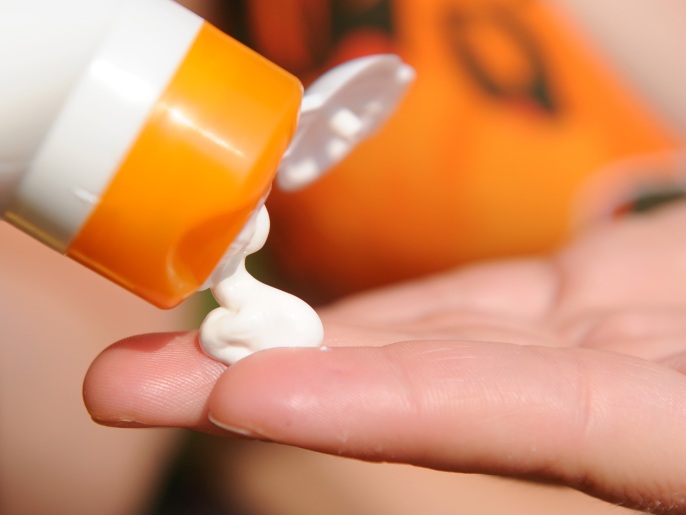It is time to prepare for the hot summer months and their harsh sun on the skin, and perhaps continuous hydration and taking fluids in large quantities will become among the most important means of protecting the skin in the coming months, and we cannot lose sight of the role of sunblock in protecting the skin from dehydration and burning and common infections.
And sun protection products are no longer a luxury, unlike cosmetics, sunscreen is necessary to avoid the appearance of wrinkles and sagging skin.
However, some may resort to commercial sunscreen, but it is not necessarily healthy to a large extent, so we now have to look for natural and economical alternatives as well, as some prefer to resort to natural products to protect the skin from the damages of using chemicals, and the sun is still the best source of vitamin (d) that we need.
Here are a set of tips to enjoy the sun and prevent its harmful rays as well.
Sunblock Cream
It is a term used to describe products that protect against UV rays, by forming a protective layer that isolates the absorption of those rays.
SPF level
SPF stands for Sun Protection Factor, which is a numerical estimate of how well a product protects your skin from ultraviolet (UVB) rays, and skin care experts recommend at least an SPF of 30.
SPF stands for Sun Protection Factor, which is a numerical estimate of how well a product protects your skin (German)
Here are some natural ways to protect the skin from the sun's harmful rays, according to the Sunwarrior website:
healthy food
Eating foods rich in healthy fats and antioxidants helps protect your skin from damage, including UV damage, so you should eat fruits and vegetables that contain “carotenoids” such as carrots, sweet potatoes, tomatoes and dark green leafy vegetables, and antioxidants, such as artichokes, lettuce and broccoli Also, eat nuts, seeds, coconut oil, and avocados.
Sunscreen with an appropriate SPF that protects the skin from inflammation (German)
Red Raspberry Seed Oil
One of the best sunscreens, it averages 28-50 SPF and blocks annoying UV rays.
wheat germ oil
It is considered a natural moisturizer with an SPF of 20 degrees.
Sesame oil
It blocks 30% of sunlight, allowing you to stay in the sun for longer without getting burned.
Coconut Oil
It blocks about 20% of the sun's rays, which means you can enjoy the sun for 20% longer than usual without getting burned, and it moisturizes the skin and reduces inflammation.
cactus
Often used after sunburn to soothe inflamed skin, it blocks about 20% of sunlight.
sun protection recipes
There are plenty of homemade sunscreen recipes, but few of them will actually protect your skin from cancer-causing UV rays, and according to Healthline, we spot some effective sunscreen solutions that you can make yourself.
First, look at the pharmacy for these ingredients: zinc oxide powder, aloe vera gel, coconut oil, shea butter, beeswax, glass jars.
Aloe vera oil and coconut oil
Ingredients
1/4 cup of coconut oil
2 or more tablespoons of powdered zinc oxide
1/4 cup of pure aloe vera gel
25 drops of walnut extract oil for aroma and SPF, then add 1 cup or less of shea butter until the consistency is spreadable.
Combine ingredients except zinc oxide and aloe vera gel in a medium saucepan.
Let the shea butter and oils melt together over a medium heat.
Leave the mixture to cool for several minutes before stirring, then add zinc oxide and mix it well to make sure it is evenly distributed, and for a more viscous consistency, add some beeswax, then keep the mixture in a dry and airtight glass container in a cool place
Sunscreen oils take care of the skin and give it a velvety texture (German)
sunscreen spray
Mix the previous ingredients, without the shea butter, and once the mixture cools completely, add a little aloe vera and almond oil, until the mixture becomes a sprayable texture, store it in a spray bottle in the refrigerator for best results.
Sunscreen for oily skin
If you are concerned about oil buildup on your skin, follow the recipe above, but replace the coconut oil with another oil such as jojoba oil or sweet almond oil.
As always, it is best to check with your doctor or dermatologist before using any new products if you have problems.
From acne or other skin problems.

